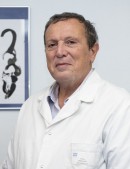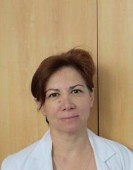- Homepage
- >Summer schools
- >Vascular
Vascular: Vessels and their environment
Cardiovascular diseases are the leading cause of death worldwide, with about 18 million deaths per year. This justifies the adage that one has the age of one’s arteries and explains that researchers work tirelessly to understand how the cardiovascular system develops and functions. Therefore, we intend to organize a short summer programme of learning, teaching and training which aims at raising students' awareness of the new pathogenic mechanisms involved in vascular disease, new investigational tools and potential targeted treatments, with the final purpose to promote excellence in the field of Vascular Medicine.
|
When |
June 16th-June 20th 2025 for the physical mobility. A virtual activity will be organised after the physical mobility, on July 1st (group 1) and July 8th (group 2) in the afternoon, Paris time. |
|
|
Where |
Faculty of Health, University of Angers, France | |
|
For whom |
This Summer school is open to undergraduate students from year 2, postgraduates and PhD students in Medicine, Pharmaceutics and Life Sciences with a strong interest in Vascular medicine. Citizens of all countries in the world are eligible to apply (not younger than 18 years old). | |
|
Language |
English | |
|
Participation fee
|
Students from partner universities*: 500 EUR Students from non-partner universities: 600 EUR Professionals: 1,000 EUR Fees include welcoming and teaching materials, coffee breaks and weekday lunches, social activities, transport pass and all costs related to scientific visits. *If you are a student from the University of Angers, Bologna, Dresden, Malta, Zagreb or Charles University in Prague, please contact summerschools @ univ-angers.fr | |
|
Learning outcomes |
Knowledge and Understanding Accuracy in identifying and describing vascular diseases (e.g., atherosclerosis, venous thrombosis). Knowledge of diagnostic tools like Doppler ultrasound or angiography. Understanding of treatment options (e.g., pharmacological, surgical, lifestyle modifications Diagnostic Skills Ability to interpret diagnostic tests (e.g., ankle-brachial index, vascular imaging). Accuracy in identifying symptoms and forming differential diagnoses. Clinical Decision-Making Formulating effective management plans tailored to individual patients. Balancing risks and benefits of treatment options, including minimally invasive procedures. Communication Skills Explaining diagnoses, risks, and treatment plans to patients and families effectively. Collaborating with multidisciplinary teams, including surgeons, radiologists, and nurses. Explore the course here. | |
|
Credits |
3 ECTS | |
|
Enrol now |
There are 30 spots available for this program, assigned on a first-come, first-served basis. The program may be canceled if it doesn't reach a minimum of 10 participants; if so, you will be offered a refund. The deadline for application is April 13th, 2025. |
Course coordinators
|
|
Prof. Pierre Abraham, Professor in Physiology at the University Hospital of Angers Pierre Abraham is a MD, PhD, Head of the departments of Sports Medicine and Vascular Medicine. His research interest is in the area of the interaction of exercise and vessels mostly in clinical diagnostic approaches. Prof. Abraham has been coordinating the Vascular Summer school since 2014. |
|
|
Dr Cristina Belizna, Associate professor of Internal Medicine at the University Hospital of Angers Cristina Belizna is an MD, PhD, member of the Department of Vascular Medicine, coordinator of the rare vascular disease competence center at the University Hospital of Angers. She is co-chairwoman of the Women's Health in Thrombosis and Haemostasis Committee SSC at ISTH and member of FAVA multi-Vascular network. |
|
|
Dr Jeanne Hersant, Vascular physician in the vascular department of the University Hospital of Angers She is a member of the Young Academy supported by the European Society for Vascular Medicine. Her research focuses on the assessment of vascular structure and function and its dissociation in specific medical conditions. She trained at the University of Angers, and after completing a PhD on the application of transcutaneous oximetry, she undertook a one-year fellowship in Australia to further develop her expertise in her research field. |




